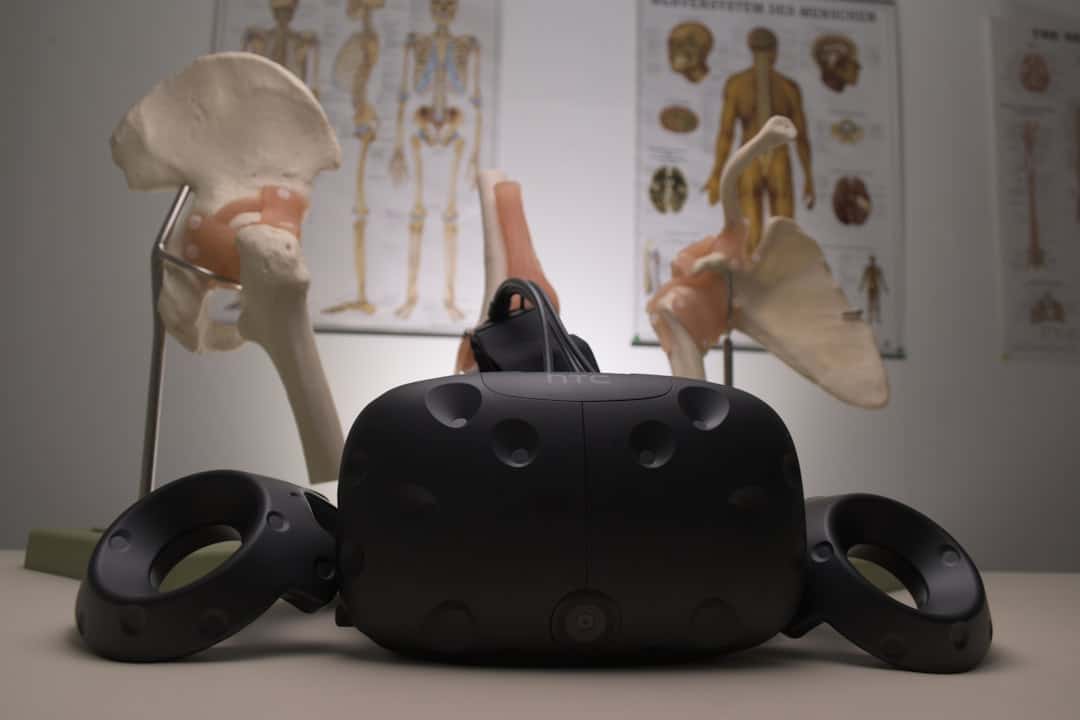Artificial Intelligence (AI) is transforming the television content creation industry, revolutionizing how content is generated, produced, and consumed. AI-powered machine learning algorithms are being utilized by television producers and creators to streamline various aspects of content creation, including story ideation, script writing, casting, character development, production, post-production, and audience engagement. This technological advancement has led to increased efficiency, reduced costs, and expanded creative possibilities for content creators.
AI’s potential to transform the television industry is significant, offering innovative solutions to traditional challenges. By analyzing vast amounts of data, AI can provide insights into audience preferences and trends, enabling the creation of more targeted and engaging content. Automation of repetitive tasks, such as script analysis and video editing, allows creators to focus on more creative aspects of production.
AI-driven personalized recommendation systems and feedback analysis enhance audience engagement and overall viewing experiences. As AI technology continues to evolve, its role in shaping the future of television content creation is expected to grow exponentially. The ongoing advancements in AI are likely to have a profound impact on the industry, introducing new possibilities and reshaping traditional production methods.
Key Takeaways
- AI is revolutionizing television content creation by streamlining processes and enhancing creativity.
- AI can assist in generating story ideas and scripts by analyzing data and predicting audience preferences.
- The use of AI in casting and character development can help in identifying the right talent and creating more diverse and inclusive characters.
- AI’s impact on production and post-production processes includes automating tasks, improving efficiency, and enhancing visual effects.
- AI has the potential to analyze audience engagement and feedback, providing valuable insights for content creators and producers.
- Ethical considerations and limitations of AI in television content creation include concerns about bias, privacy, and the potential for job displacement.
- The future of AI in shaping the television industry is promising, with continued advancements in technology and the potential for more personalized and immersive content experiences.
The role of AI in generating story ideas and scripts
Generating Compelling Story Ideas and Scripts
With the help of natural language processing (NLP) algorithms, AI can analyze vast amounts of data, including existing scripts, viewer feedback, and market trends, to generate compelling story ideas and scripts. By identifying patterns and trends in storytelling, AI can assist content creators in developing unique and engaging narratives that resonate with audiences.
Enhancing Character Development and Story Arcs
AI can aid in the creation of dynamic characters and plotlines by providing insights into character development and story arcs. This not only streamlines the creative process but also opens up new possibilities for storytelling in television content.
Refining Scripts and Enhancing Content Quality
By leveraging sentiment analysis and predictive modeling, AI can provide valuable feedback to content creators, enabling them to refine their scripts and enhance the overall quality of the content. Additionally, AI-powered tools can facilitate collaboration among writers by providing real-time suggestions and revisions, leading to more cohesive and polished scripts.
The use of AI in casting and character development
AI has significantly impacted the casting and character development processes in television content creation. With the help of machine learning algorithms, casting directors can utilize AI-powered tools to analyze vast amounts of data to identify potential talent for roles based on various criteria such as acting ability, physical attributes, and audience appeal. This not only streamlines the casting process but also ensures a more data-driven approach to talent selection, leading to more diverse and inclusive casting choices.
Additionally, AI can assist in predicting audience reception to specific casting decisions, enabling creators to make informed choices that resonate with viewers. Moreover, AI has revolutionized character development by providing insights into audience preferences and trends. By analyzing viewer engagement data and social media interactions, AI can identify characteristics and traits that resonate with audiences, enabling creators to develop more relatable and compelling characters.
Furthermore, AI-powered tools can aid in creating dynamic character arcs by identifying potential storylines and interactions that align with audience expectations. This not only enhances the overall quality of character development but also ensures that characters are more nuanced and multidimensional. As a result, AI is playing a crucial role in shaping the casting and character development processes in television content creation, leading to more diverse and engaging storytelling.
AI’s impact on production and post-production processes
AI has revolutionized the production and post-production processes in television content creation by providing innovative solutions to traditional challenges. With the help of AI-powered tools, production teams can automate various tasks such as video editing, color correction, and sound mixing, leading to increased efficiency and reduced production costs. Additionally, AI can assist in optimizing production schedules by analyzing historical data and predicting potential bottlenecks, enabling producers to make informed decisions that streamline the production process.
Furthermore, AI-powered cameras and equipment can capture high-quality footage with minimal human intervention, ensuring a more seamless production experience. In post-production, AI has transformed the way content is edited and refined. By leveraging machine learning algorithms, editors can utilize AI-powered tools to automate repetitive tasks such as scene tagging, shot selection, and visual effects integration.
This not only accelerates the editing process but also ensures a more consistent and polished final product. Additionally, AI can assist in quality control by identifying potential errors or inconsistencies in the footage, enabling editors to make necessary adjustments before finalizing the content. As a result, AI is reshaping the production and post-production processes in television content creation by providing innovative solutions that enhance efficiency and quality.
The potential of AI in audience engagement and feedback analysis
AI has immense potential in transforming audience engagement and feedback analysis in television content creation. By leveraging machine learning algorithms, content creators can utilize AI-powered recommendation systems to personalize viewer experiences based on individual preferences and viewing habits. This not only enhances viewer satisfaction but also increases audience retention and engagement.
Additionally, AI can analyze viewer feedback from social media platforms and streaming services to gain insights into audience sentiment and preferences. This enables creators to make informed decisions about content development and marketing strategies that resonate with viewers. Furthermore, AI-powered tools can facilitate real-time audience engagement through interactive experiences such as chatbots and virtual assistants.
By leveraging natural language processing (NLP) algorithms, these tools can provide personalized recommendations, answer viewer queries, and gather feedback in a more interactive and engaging manner. Additionally, AI can assist in sentiment analysis by identifying trends in viewer reactions and emotions, enabling creators to tailor content that aligns with audience expectations. As a result, AI has the potential to revolutionize audience engagement and feedback analysis in television content creation by providing innovative solutions that enhance viewer satisfaction and interaction.
Ethical considerations and limitations of AI in television content creation
Bias and Lack of Diversity in AI-Driven Casting Decisions
One of the primary concerns is the potential bias in AI algorithms used for casting decisions and audience engagement. If not carefully monitored, these algorithms may perpetuate stereotypes or favor certain demographics over others, leading to a lack of diversity and inclusivity in television content.
Data Privacy and Security Concerns
Additionally, there are concerns about data privacy and security when utilizing AI for audience engagement and feedback analysis. Creators must ensure that viewer data is handled responsibly and transparently to maintain trust and ethical standards.
Limits to AI’s Creative Capabilities
Moreover, there are limitations to the creative capabilities of AI in television content creation. While AI can assist in generating story ideas and scripts, there is a concern that it may lead to formulaic or derivative content that lacks originality and creativity. Furthermore, there are limitations to the emotional intelligence of AI when it comes to character development and audience engagement. Human emotions are complex and nuanced, making it challenging for AI to fully understand and replicate genuine emotional connections in storytelling. Ultimately, it is essential for creators to balance the use of AI with human creativity and empathy to ensure that ethical considerations are upheld while leveraging the benefits of AI technology.
The future of AI in shaping the television industry
The future of AI in shaping the television industry is filled with immense potential for innovation and transformation. As AI technology continues to evolve, its role in television content creation is expected to expand further, leading to more personalized and immersive viewing experiences for audiences. With advancements in natural language processing (NLP) algorithms and deep learning techniques, AI will play a pivotal role in generating more sophisticated story ideas and scripts that resonate with diverse audiences.
Additionally, AI-powered tools will continue to revolutionize production processes by automating tasks such as video editing, color correction, and sound mixing, leading to increased efficiency and reduced costs. Furthermore, AI will continue to enhance audience engagement through personalized recommendation systems, interactive experiences, and real-time feedback analysis. By leveraging machine learning algorithms, creators will be able to gain deeper insights into audience preferences and sentiments, enabling them to develop more targeted and engaging content.
Additionally, AI will play a crucial role in optimizing marketing strategies by analyzing viewer data and trends to tailor promotional campaigns that resonate with specific audiences. As a result, the future of AI in shaping the television industry is poised to revolutionize content creation processes while providing innovative solutions that enhance viewer satisfaction and interaction. In conclusion, AI has revolutionized television content creation by providing innovative solutions that streamline various aspects of production while enhancing audience engagement.
From generating story ideas and scripts to casting, character development, production processes, post-production processes, and audience feedback analysis, AI has reshaped the way television content is created and consumed. While there are ethical considerations and limitations that need to be addressed, the future of AI in shaping the television industry is filled with immense potential for innovation and transformation. As technology continues to evolve, it is essential for creators to leverage the benefits of AI while upholding ethical standards to ensure that television content remains diverse, inclusive, and engaging for audiences around the world.
There is an interesting article on metaversum.it that explores the concept of the metaverse and what Albert Einstein might have to say about it. The article delves into the potential implications of the metaverse and how it could impact society. It’s a thought-provoking piece that raises important questions about the future of virtual reality and artificial intelligence.
FAQs
What is AI content creation?
AI content creation refers to the use of artificial intelligence technology to generate and produce various forms of content, such as articles, videos, music, and more, without direct human involvement in the creative process.
Can AI create television content?
Yes, AI can create television content. With advancements in AI technology, there are now AI systems that can generate scripts, storyboard ideas, edit footage, and even create entire episodes of television shows.
How does AI create television content?
AI creates television content by analyzing large amounts of existing content to understand patterns, styles, and structures. It then uses this information to generate new content, such as scripts, dialogue, and visual elements, based on the parameters and guidelines provided by human creators.
What are the benefits of AI-created television content?
Some potential benefits of AI-created television content include cost savings, increased production efficiency, and the ability to generate content at a faster pace. AI can also offer new creative perspectives and ideas that may not have been considered by human creators.
Are there any limitations to AI-created television content?
While AI can generate television content, there are limitations to its capabilities. AI may struggle with understanding complex emotions, cultural nuances, and human experiences, which can impact the quality and authenticity of the content it creates. Additionally, AI-generated content may lack the human touch and creativity that comes from genuine human storytelling.












Leave a Reply